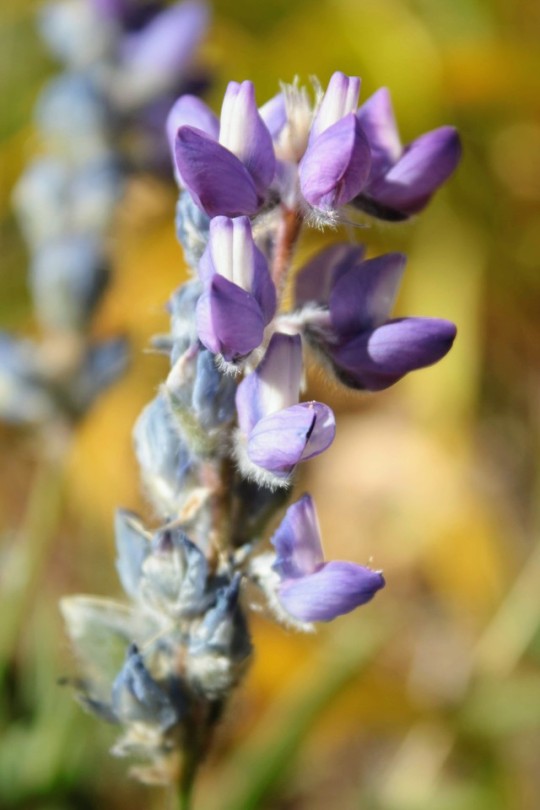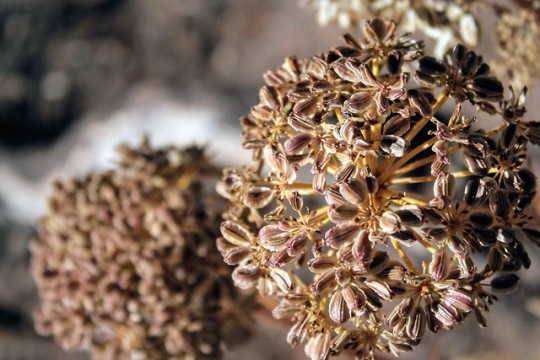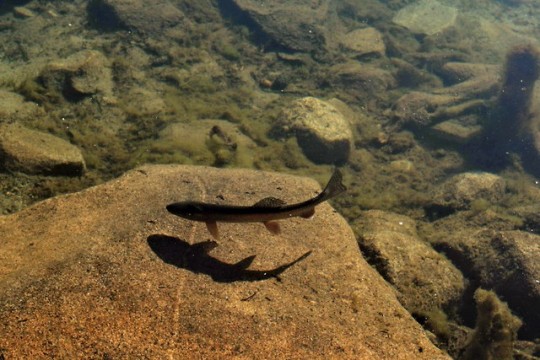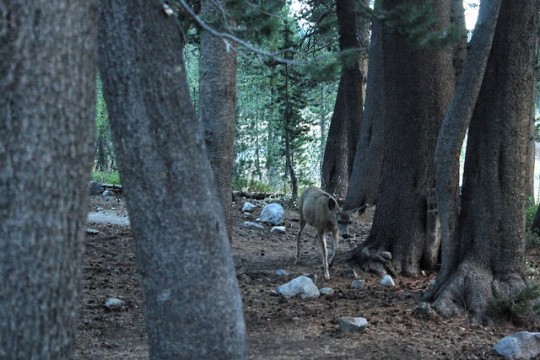#my Curious And Investigatory Mind
Explore tagged Tumblr posts
Text
Idk if it's me getting older or less fandom brained but I don't really get the 'shipping' impulse for the most part. Like I have to either REALLY believe a romantic angle is being intentionally written (and I tend to go into things with a hard skeptic angle to avoid disappointment LOL), or be really desperate for a femslash option (and even then it has to be at least a little plausible to me).
Like I do get heavily invested in fictional characters' relationships but it's usually more of an 'as-is' thing. I don't really understand the appeal in putting characters together romantically/etc just because you Can.
#Not a judgment thing (though when people only engage with fiction through a medium of 'is it shippable'.. Some judgment yeag)#And I DEFINITELY used to get it and be like that but now I just see so many things and am like Why?#Though there is a middle ground of like 'I don't think this is being intentionally written but I detect a hint of homosexuality' but it's#not really a shipping thing. Like thinking Mike BCS reads a little gay with some quiet affection for Werner that was never going anywhere#I don't want to read Mike x Werner fanfictions or wish that they had a whirlwind romance before the murder I just#think there's a little something there#Of course having said that I'm immediately like 'I wonder if anyone ever wrote Mike x Werner fanfictions' but that is mostly#my Curious And Investigatory Mind
18 notes
·
View notes
Text
making a note for therapy.
I was thinking about how I have experienced the effects of trauma throughout my life, wondering about ptsd symptoms and whether or not it applies (it probably does I've just never had a therapist say the words to me). one symptom listed is nightmares, and I do have a clear memory of one time when my best friend slept over and I woke her with a nightmare I was having about (abusive person). that train of thought seemed to unlock related memories about my trouble with sleepovers during middle school. I would wake up in the middle night, regardless of whose house I was at, and go to the bathroom to conceal my panic attacks. One time it was so severe that I vomited and had to be picked up. Remembering this was one experience to note, but the other is that as I was remembering this, as soon as the memories of those midnight panic attacks came up, my brain shut down like someone pulled the plug on a desktop PC. I went from having a curious investigatory train of thought to falling numb, limp, and mind blank almost immediately. I felt so heavy and disconnected from the present it almost felt like I was falling asleep. Idk how long I stayed that way and eventually I came out of it, and it spooked me enough that I came here to write it down. But as soon as I got to the part of the post about the panic attacks, I felt the shutdown feeling again. I had to sort of switch off the physical and emotional sensors in me and put myself in this purely intellectual state to be able to write about it. Somehow I feel this is what happens during the few therapy sessions where I am able to discuss traumatic events in any detail-- I switch off everything but the facts-processing and recite them like it's an oral history test. Even my therapist commented on it once-- she asked me how it felt to tell the story I had told, and expressed surprise when I said I was overwhelmed by emotion. I imagine now that this was true, just not expressed in the typical way. Instead of being overwhelming within the tolerable amount manageable through crying, fidgeting, etc, it was so overwhelming that I chose not to feel anything at all.
#I just reread the post and you can tell exactly where this switch happens because the writing style and syntax literally changes.#personal#trauma recovery
0 notes
Text
If You Know Where to Look - Part 4
Summary: in which exsanguination is one hell of a drug
Part 1 / Previous
Read on Ao3
Word count: 2,720
Rating: T (for now)
Pairing: Loki/Reader
Warnings: Blood and Injury
*
Chapter 4: The Devil You Know
“What have you done?”
He repeats the words, icy tone thawing into rolling fervor.
She gives no answer. Though her mouth is silent, her lips are pursed as if she might spit. Blood trickles through her clutching fingers, and her eyes, blazing with pain, with hate, dare to meet Einvald’s as he shakes her in frenzied pique.
“He will not want you like this!” He yells, bared teeth inches from her face. “No prince would be willing to pay for a woman with such blemish, no man at all would desire a scarred, ugly little wife!”
And Loki knows, with a wrest in his gut, that this is the heart of it. So greatly does she not want to marry him, so disturbing the mere thought, that she would sooner mutilate herself than be with him. Here is a girl he has not once met before, yet whom he has somehow terrified unto desperation. Is he truly that much of a monster, that one look at him would cause an innocent girl to draw a blade against her own flesh, to carve up her face in her defiance, just to get away from his clutches?
Uncharitable bitterness wells up like bile behind his teeth, wringing his face into a frown.
***
You’re shocked. Einvald is shaking you, hard, your whole body swaying on unsteady legs. His face is so near to you, so angry, that tears spring to your eyes, and it hurts, it hurts, the whole side of your face burning like an iron brand, like your cheek is pressed against the red, fulgent coals of a freshly killed fire. And the blood. There’s so much of it, slippery and hot, flowing out of your body even as you try to stanch it. But the words he says tear through the fear and agony and lodge like an arrow in your chest, stopping your breathing as you go limp, numb. Or rather, one word in particular.
Wife. Not a whore. You blink once, twice, dazed.
“No man at all would desire a scarred, ugly little wife.”
The word rolls around your mind and you frantically try to concentrate on it. How could... But that wasn’t... Hadn’t Einvald told you... but perhaps he hadn’t. He had never told you anything. You had been the one to connect the dots, you realize, feeling utterly lost and confused. But then... but why... Why would Prince Loki want you as a bride? You try to grasp at that, try to focus, but your upright body feels like it’s falling, and Einvald is still barraging on about how you’d ruined everything, how he’d never get what was due to him because of your failure, and your vision narrows and dims, and any moment now your body will give one final lurch and then-
“Leave me,” a different voice says in a low hiss.
Einvald stills as if only now remembering he has an audience, and your eyes, which had drifted closed, flicker open as you both, captor and hostage, look at the source.
Loki — stood taut and stately in a loose, silken tunic of patterned silver, and black, close-cut leather leggings, hair neatly combed back from his face — looks both ferocious and imperious, all over a prince, anger roiling behind soft green eyes. At you or at Einvald, you are uncertain.
“Your Highness,” Einvald says in a way that’s meant to be pacifying, turning to the prince with a nervous grin, and it’s jarring to hear him speak so obsequiously after seeing him snap and order around his men and Pínaluk.
Prince Loki doesn’t let him finish.
“You asked a moment of my time, Sir Einvald,” he says crisply, fixing the man with the full brunt of his hard stare. “You stood before me, striving to sell me lies, and offered me this woman, this girl. A noblewoman you said, yet she is nothing of the sort. Do you really believe that, because she doesn’t dress in the rags of peasants, she must have political standing? Or would you attempt to so deceive me, to line your own pockets in my foolishness, and laugh once my back is turned? Know well, Einvald, that I am no fool. Nor do I have want of a bride, much less a frightened little runaway presented to me like wares that can be bargained and purchased!” His voice, while still quiet and restrained, has risen in severity, his fury a low hum waiting to be unleashed. Palpable. He stalks forward nimbly until he is glaring down at Einvald, who has gone pale in the wake of it. “Your moment is over. Now leave me.” The words are bitten out and leave Einvald no room for argument, for smarmy placations or endeavors to wriggle out of the corner he’s been backed into.
You watch with a distant sort of fascination at seeing Einvald so cowed by the prince’s words, subdued like a dog brought to heel by its master. It satisfies some execrable part of you, a dark little recess in your heart that is storehouse to your spite and rancor for the man who stole you and would pawn you off for his own avaricious benefit.
Einvald takes you by the upper arm as he wordlessly tries to flee, and all the halfway-there thoughts of revenge scatter like startled, flighty birds in your head.
Prince Loki holds up a hand in a halting motion.
“No,” he states simply. “She stays.”
Einvald gapes, likes he’s about to protest, to claim he has been somehow cheated, but evidently thinks better of it, and after stopping just long enough to retrieve his fallen seax and wipe it clean in the grass, departs with his men back along the path from where you had come.
Prince Loki approaches you, and you look up at him in question. His countenance has not lessened, and uneasiness laps at your tentative consciousness.
He wraps his fingers around your wrists and pulls your hands from your face. They come away horribly stained, a smeary mess of dark red. You wonder for a passing moment how you’ll ever get all of the blood off your skin. The wound has stopped spewing, and now viscous crour gurgles to the surface indolently.
“Hold still.”
Loki bends down slightly as he inspects the damage you wrought on yourself, and his dark head bobs in front of you. It makes you feel a bit dizzy.
He pries strands of your hair, clumped and tacky with drying blood, out of the wound and turns your head to better observe it. His hands are firm but not harsh, and his manner has the detached brevity of one who is accustomed to tending to impersonal injuries.
This is news, you observe as your eyes droop. You hadn’t heard any talk of the prince’s healing abilities, though you hadn’t heard much talk of him at all, come to think of it.
You’d heard lots about Prince Thor, though. Of his ardent pluck in his many battles, of his might, which made him something of a hero in the eyes of little boys everywhere — as well as many a grown man — as they played at being warriors with their imaginary hammers. Of his boisterous ale-talk, the hearty and captivating tales he told of the adventures of he and his companions when he was in a drinking mood. Of the sweetness he bestowed on Lady Sif without measure, the kind of lingering glances and soft touches that were the envy of the young women who would giggle as they spoke of them, carefree in their yearning for their prince’s affections. You’d heard it been said that a simple smile from Prince Thor was enough to charm even the most callous of people into his good graces.
Yes, Prince Thor was a very popular conversation topic, for everyone loved their future king. It had never occurred to you before to wonder if there was a reason no one gossiped so casually about Prince Loki like that. You frown.
You’re pulled from your slurred thoughts as the prince prods an investigatory finger too close to the raw, open flesh of your cheek, and you cry out and wrench you face away from him, snarling defensively as your eyes water.
“That hurts!” you hiss indignantly, before you can think better of it, before your eyes regain focus and you remember who you’re talking to, and that it would beseem you to show respect for your prince.
“And who, exactly, is to blame for that?” he grits out, more cross than he had been. You say nothing, trying to blink away the last of your tears. “I thought I told you to hold still.”
You set your teeth and brace yourself as he returns to his work.
He leans in further, so close you can smell his hair — and isn't that just plain weird to notice. You wonder if he can smell anything other than the acrid tang of your blood — with a frown of concentration, of irritation, of both, tugging his mouth in a lopsided line.
His fingers once more touch the laceration, and they feel cold over your hot, inflamed skin. It still stings savagely, but the chill numbs the worst of it and you let your eyes fall shut as they’ve been longing to do for a while now. As he drags his fingers along the length of it, it slowly starts to ease, and a curious, tingly sensation spreads, like the rent flesh is being put back together, mended.
Prince Loki pulls his hand away and mutters a curse and you force your eyes open. He’s staring at the place the wound had been in mild alarm, and you feel suddenly cold.
He waves his hand over the spot, trying something else, and a feeling like a warm wind stirs over your face for a second before choking off abruptly, and then he leans back, dumbfounded.
You reach up and find a long line of a scar beneath your fingertips, and the sensation is dull on your face, the rigid, raised flesh hardly seeming like part of your skin, part of you.
Then Loki is shouting.
“You stupid, witless, cowardly little girl!” he seethes, sneering with unchecked malice. “You’ll bear that scar as long as you live,” he says, and there’s something triumphant in the way his eyes gleam, something ugly and gratified, like he knows you deserve it. “That blade must have had an enchantment on it. Elf magic, if my guess is any good, which, if you didn’t know, is notoriously impervious to being tampered with, to being... undone. If my magic cannot heal that wound, nothing in the Nine will.”
Outrage flares in your chest at his demeanor, at the repugnant medley of smug superiority and sheer glee. But his words prick you like nettles, and the sting of them is what smothers the spark of anger. He’s right, and that’s the worst part. This is what you wanted, is it not? It was the plan all along. Although, it never would have been if you had only known ahead that you were never meant to be sold into the prince’s bed. But that hardly matters now, in the aftermath. As the dust settles, what matters is the cold, dead tissue under your fingers, and though the wound no longer pains you physically, there will always be the sharp ache of desperation, of helpless fear in the memory.
You don’t give Prince Loki an answer. You don’t have one to offer even if you deemed him worthy of one. Instead of glowering at him, as you’d very much like to do, you contain yourself, barely, and fix your eyes firmly on the ground, at the spattered drops of blood soaking into the grass. So much blood, you think absently. On your hands. On the earth. Drying to a stiff crust on the front of your dress. All outside of your body. But blood is supposed to be inside. How much of it, of you, did you lose? How much is still left? Is it enough? you wonder woozily, and the thought that it might not be scares you.
You think you hear a voice nearby. It sounds familiar. It sounds... anxious. Maybe it’s your own voice, worried about your lack of blood. But there are footsteps, and surely those aren’t yours. You’re not walking. At least you don’t think so. You glance at your feet, and the slight movement sends the earth reeling beneath you. As you swoon, arms close around your shoulders and you know those aren’t yours. And that’s the last thing you know as fade into full oblivion.
***
Loki grunts as the slack body of the woman crashes into him, and he grabs at her before she can collapse on the ground, supporting her sprawled weight on one knee he’d hurriedly jut out to brace her with his arms clutching at her shoulders. He shifts his limbs so he can haul her up properly, and it’s a little bit awkward, trying to maneuver a good grip without letting her drop, but he manages it eventually. He stands and carries her, her arms and legs limp, hanging weight and her head rolling toward his bicep. He presses her bloodily clothed body closer and mourns a bit at the inevitable blood besmirching a favored tunic of his, but doesn’t dwell on it overmuch as he sets off, again, for the palace.
He walks steadily through the long, echoing halls, the sound of his boot heels on the stone thrumming unduly loud against his eardrums. Servants pass him on occasion, and he pays little mind to their curious eyes and rumor-ready mouths, not daring to think of the nonsense they’ll no doubt spew up to contextualize his cradling of a half-dead looking woman as he traverses the palace corridors and makes his way to the healing wing.
He deposits the woman there in one of the many empty beds, not bothering to turn down the cover as he simply drops her on top of the floral and cream quilt and turns to find Eir. It’s the matter of but a moment, since the goddess of medicine is never far from her halls, even when there are no sick and injured to tend. Her eyes land on his bloody fingers and smudged tunic, and the next moment finds her coming closer, hands instinctually lifting toward him as if to check him over for injuries. Her immutable concern for him is touching, if unnecessary, and he pushes back his lingering acrimony and sore confidence, for the time being, as he addresses her.
“It’s not mine,” he says quietly, before she gets a chance to fret over him in earnest. “I’ve merely bee the unwitting sumpter of your newest patient.”
That causes her to pause and frown in confusion, and perhaps a fair amount of skepticism, before setting in on him with a slew of analytic questions.
He answers her inquiries best he can, which isn’t much, but it’s enough to satisfy her until the woman wakes and can answer for herself.
And so Loki returns to his own rooms, to finally have that bath after all, now that he really needs it, all blood and sweat and simmering irritation from head to toe.
And as he scrubs the refuse of the day from his skin, water long gone tepid, his mind lingers on thoughts of the scared but unrepentant eyes of the girl, of her too-pale lips gone nearly white from the pain, from the loss of blood. Of her grim determination, to do that to herself, to pull the blade across the soft, tender skin of her face. He winces as if he is in pain, just thinking about it. It’s a potent image.
He had called her cowardly. And perhaps, in a way it it is true. Fear of the unknown, of him, had been her motivation. He knows this, just as he knows that the venom that burns in his heart like acid that the thought brings will never truly be silent. But, he realizes uncomfortably, with a twist of his stomach that is dangerously close to something admiring, it was a brave thing to do as well.
Part 5
#loki fic#loki fanfic#loki/reader#loki/you#loki x reader#loki x you#loki odinson x reader#loki odinson x you#loki laufeyson x reader#loki laufeyson x you#loki fandom#loki imagine#if you know where to look#bifrostgiant writes
21 notes
·
View notes
Photo










Flora and Fauna of the JMT
It was dry and quiet in September. Had I hiked earlier in the season I would have seen the flowers that come with May showers. In exchange for a limited number of blooms, I received three weeks free of precipitation - worth it, given that Indian Paintbrush and Lupine never bored this prairie peasant. The near-complete lack of bugs was another important bonus. The twisted, turned trunks and generously discarded cones of the conifers set the stage in the forests. While shielded by their mass, grey came from their bark, while on unshielded climbs to the many passes, it came from the rocks. Golds of dried grasses and stagnant, late-season water, and blues of the sky, reflected in quiet lakes, completed the palette that dominated the hike.
Trout teased me from beneath the surface of so many alpine lakes that I was convinced they knew I was without a pole. A few marmots and one pika were bolder and braver than I expected, but neither species as audacious as the California ground squirrels that thieved my trail mix on Half Dome nor as vocal as the tree squirrels that shrieked at me from logs and branches all along the way. Mule deer - with their cartoonish ears and smaller stature - were easily spooked, but curious on occasion. I heard from fellow hikers about their bear sightings - almost exclusively notched within the first day or two at Yosemite, where human food is plentiful - but had none of my own. I saw plenty of birds, mostly small and cute; the Dark Eyed Junco does a good enough job representing these en masse. Steller’s Jays are a fascinating first sight with their bold blues and blacks, and were common, too, but I reserve “cute” for the birds that don’t harass me with shrieks and aggressive suggestions that my food might be theirs. Some type of mustelid - a weasel, a pine marten? - showed off, scampering more quickly than any squirrel, nearly bouncing up, across, and over a heavily wooded patch. Conspiracies (”unkindnesses” is an alternative term) of ravens joined in with a late appearance around Bighorn Plateau, floating on thermals affording them a view of the vast and uninterrupted landscape.
My favorite animal interaction - one I’ve now recounted numerous times, with my audience forced to believe my word, without my having gathered proof in the form of photographic evidence - came early. After having summited Half Dome in the morning and continued on relatively late, I spent night two at the base of a climb up Sunrise Mountain, at the last water for a few miles (a report which spooked me early on), at the last crossing of Sunrise Creek. The site, a relatively large one, well-padded by fallen pine needles, was, even for its size, slightly overpopulated. A group of 9-or-so from Korea were first to stake out their tents, while I continued to decide if I wanted to continue on. We were joined by Bill, a retired doctor from Iowa, and two women - Sammie and Mary - from Minnesota. I decided to round out the Midwest representation, but cautiously avoiding breaching expectations, picked a less-than-ideal spot across the trail from the rest of the crew. I was the last to make the decision, but when I finished setting up camp, it was still early. I cooked my second dinner - couscous and tuna - and enjoyed it over some reading as the sunlight making it through the trees waned.
I had lost my second water pouch (and the snow stake I bought for digging catholes) earlier in the day. In combination with the news through-the-grapevine that the stretch ahead was drier than usual, this development made me particularly water-conscious, a proclivity that lasted longer than I needed it to, adding generously to the number of pounds I carried and calories I burned along the first few days of trail. To avoid the numb hands that came with an early-morning stream fill-up and filtering of multiple bottles, I decided to check that task off the to-do list before going to bed.
As I prepared my things, I saw a handful of the Koreans standing under a tree, looking up, their cell phone cameras flashing. I eventually made my way over, just as they began to disperse. I made eye contact with their leader (he who had most confidence in his English) and he responded to my quizzical look with an excited one-word explanation: “owl!” I moseyed to their former spot, scoured the branches above me, with nothing to show for (er, look for). Disheartened, I resigned to the path towards the river. Watching my step in the early dark, I turned upstream to find a suitable spot to collect water. As my gaze returned to the space in front of my head, I froze. Owl!
It sat on a branch at eye-level, less than ten feet away. Bigger than my head, smaller than a breadbox. My headlamp, water filter, and water bottles filled my hands and pockets. My mind went to my cell phone and my DSLR, both of which sat idle near my tent. If the owl had just moved spots, I thought - it might move again before I could return with a camera. I pushed the urge aside and decided to stay, to wait, to observe, to settle into the interaction for as long as the owl would allow. After some time (a minute, two?), I realized how lucky I was to have this moment, excited I’d be able to tell the story later. To add detail to the story, I started my stopwatch. I was curious to know how long we shared the moment; it had already felt like a fortuitous eternity.
The owl continued to sit and stare, only occasionally breaking eye contact in order to examine the source of sounds I could not hear. She perpetuated owl stereotypes by bobbing her head in a circle while maintaining eye contact. I looked back occasionally, to see if any of my camp companions were headed my way, to warn them and alert them to the magic ahead of them. They weren’t coming. While returning my gaze to the branch after one of these glances, I caught a flutter of wings in my periphery, accompanied by the stealthiest rustle, amazed by the silence. She glided across the stream, doubling the distance between us, settling on a large rock next to the brook. She wandered a bit on her pedestal, the perfect size for an owl. The experience at this point began to edge into the spiritual, her presence magnified by the setting, both of us sharing the dark, still, and quiet, punctuated only by the stream’s gentle babble.
With another sudden flutter, she hopped down the water’s edge to investigate. As she bowed her head, seemingly to take a drink (as I had also come to do), a faraway crackle interrupted the moment and she jerked her head up, away from the water. After a brief, investigatory pause, she flapped (a verb too loud for the way she flew) downstream a few yards, breaking me out of the trance of intimacy. I struggled to see her through the darkness, but she stayed nearby. I immediately missed her details. Curiosity getting the better of me, I equipped my headlamp and illuminated the bird. She gave me the courtesy of looking back my way, her enormous pupils glowing brilliantly. I felt guilty about the intrusive illumination, switched off my headlamp, allowing her and her eyes to return to the task at hand.
0 notes
Text
The Hound of the Baskervilles (2011, Big Finish), Nicholas Briggs & Richard Earl
tl;dr above the cut: Sanguinity is cranky because they cut every Holmes-Watson shenanigan in the name of “authenticity.”
I admit, I went into this feeling testy, because in the commentary tracks of the previous Big Finish audios, people had been bragging about how this is the “most authentic” adaptation of HOUN ever.
(Just so you know, “authentic” is one of those poorly-examined words that gets me like nails on a chalkboard. It’s always used for gatekeeping, and in a way that I typically find grossly disingenuous. To badly paraphrase Robert Frost, if someone is building a wall, I’d ask to know why we need a wall, what standing they have to build the wall — is it even your property, dude? — what they are walling in our out, and to whom they are like to give offense. Frustratingly, “authentic” strongly discourages asking those questions: it obscures the actual criteria behind the judgement, and further implies that the judgement is objective, universal, and inherently valuable. Even worse, when I dig into the criteria hidden behind a given use of “authentic,” it often becomes apparent that none of those implied virtues are actually present.)
Anyway, the more they talked about “authenticity” in their commentaries, the crankier I got:
Commentator: No adaptation of HOUN has ever done it straight— Me: Really? I don’t remember either of the Coules adapts taking any liberties with the plot, deductions, or characterizations. Lenfilm was so respectful of the original details as to put ACTUAL phosphorous paint on an ACTUAL dog, and Granada trailed only a little behind Lenfilm in accuracy— Commentator: They always add stuff like seances— Me: Okay, Roxburgh went far afield, but that’s a weird detail to seize on if you’re going criticize Roxburgh for taking liberties. And who else did a seance? Was there a seance in Rathbone or something? Commentator: —or having Stapleton drown in the Mire— Me: Oh, c���mon, that’s the authenticity hill you want to die on? Are you kidding me? Stapleton EXPLICITLY drowning vs Stapleton IMPLICITLY drowning?? Because if that’s where you’re going to set the bar, you’re going to have a tough time clearing it. Commentator: —and most productions cut a bunch of stuff, such as Laura Lyons. Me: All right, that’s a fair cop. She gets cut a lot, and even when she stays in, many productions aren’t super-clear on what to do with her. But what is so critically important about including Laura Lyons?
Eventually, however, they said enough that it became clear that “authentic” meant “lots of narration by Watson.”
I’ve run into this idea before: Watson-narration is a thing in the history of radio Holmes. (Bert Coules apparently had to fight the BBC higher-ups on their insistence that Holmesian audioplays must necessarily include Watson voiceovers. It took half of canon to do it, but Coules eventually started winning those fights, which is why the later Merrison/Williams plays don’t have voiceovers.) I personally am not a believer in the necessity of a Watson voiceover; in fact, I think it often weakens the production overall. In grossest terms, if a single actor is telling us what’s going on, then the production-as-a-whole is failing to show us. An audioplay is a different medium than an audiobook: play to the strengths of your chosen medium, and let us hear the action and emotions! Furthermore, there’s the issue of information flow: it simply requires more time to describe an action than to let us hear it unfold, just as it takes longer to describe emotions than to let us hear them in the actors’ deliveries. The more you employ narration, the less net information you can convey. Narration is a bottleneck, and there are relatively few situations in which it makes the overall story flow more smoothly.
So, you know, I was already feeling testy about the production's conceptual framework before I hit play. But I did try to put my testiness aside and give it a fair listen: appearances to the contrary, I don’t actually enjoy being a crankypants very much.
Altogether, I think it was pushing definitions to call this an audioplay; it is more accurately an abridged audiobook with multiple readers and liberal sound effects. By which I mean, every single line, whether narration or dialog, is a line that Doyle himself wrote. Furthermore, at no point are we allowed to simply hear what’s going on; instead, we are always told everything via narration. We are never allowed to hear a gunshot and infer that someone has shot a gun; Watson scrupulously always takes a few seconds to tell us that the gunshot we just heard was… someone shooting a gun.
Now, I don’t have a problem per se with using Doyle’s words — he wrote some fine words! — but it’s as I said above: if you’re going to rely on narration to convey everything, then the information-flow is choked down to the rate of human speech. Their over-reliance on narration meant they had to cut ruthlessly to trim the six-to-seven hours it takes to read HOUN aloud down to the targeted two hours for their audioplay.
Meanwhile, please remember that they were priding themselves on “not leaving anything out.”
How does that work, exactly?
This is how it works: they cut nearly every single character note.
Holmes watching Watson in the teapot, gone. Most of the walking-stick scene, gone. (Conductor of light stayed, but nearly everything around it was missing.) The skull coveting, the snit about M. Bertillon, the rising back-and-forth to the punchline about whose footprints, all gone. The poisonous atmosphere of tobacco smoke Holmes created at Baker Street; the idea that he’d think better in a box; the line that if Watson will tolerate Holmes’ company then Holmes is satisfied with Watson’s; Sir Henry’s declaration that nothing will keep him from the home of his people; the entire scene with the cabbie; Holmes worrying about Watson’s safety in Devonshire… Nearly everything that is charming, comic, or for which I have affection: all of it gone.
(On the upside, they also cut all of Sir Henry’s gawdawful “Americanisms” — so that’s something? I guess?)
I do understand, of course, that any two-hour rendering of HOUN has to pick and choose — I’ve yet to see/hear one that includes every character element I listed above! And yet most still find time to include some of them. To my mind, it’s a very strange definition of “authenticity” that excludes every point of characterization, humor, and character interplay.
(And yet hey found time to describe Sir Henry’s nostrils. By all means, let’s keep the valorous nostrils!)
Altogether, it made for a very flat rendering of HOUN, especially in the beginning, when the humor is the main thing going. It got better after they got to Dartmoor and started describing the fog and the atmospheric gorse bushes, but there were still some strange pacing issues: for example, Watson’s sighting of the ~mysterious figure~ on the tor went by so quickly that I nearly missed it. Which is a shame, for a production that lays so much emphasis on Doyle’s actual words: I do enjoy Watson’s over-the-top turns of phrase in describing that figure.
(Also gone, and which I missed hugely: Watson skillfully distracting Mortimer with a convo about skulls, and Watson later playing Frankland by feigning non-interest in his information. Worse, they had Watson be flat-out eager for Frankland’s info. If you’re going to pride yourself on sticking to Doyle’s actual words, you could at least abridge them in a way that’s character-accurate.)
Given what-all they chose to cut, I was curious as to how they would handle Holmes’ and Watson’s reunion. As it turned out, they kept “you use me but you do not trust me,” and changed the line about the letters from an expression of frustration (“All my reports wasted!”) to a non-judgemental question (“Were all my reports wasted?”) Every other personal part of the reunion was left out: Holmes teasing Watson about how it’s a lovely evening outside, the bit about recognizing Watson by his cigarette brand… Everything that suggests any kind of connection between them, easy or difficult, all gone.
As I said: it’s a very flat HOUN. You better be here for the monster dog, because there’s literally nothing else happening.
And while we’re discussing the weak points of the adaptation, I found the sound effects distracting: they didn’t supply additional information, and many times the effects were subtly wrong. (Every footstep on Dartmoor was apparently taken on gravel, no matter the actual terrain. Also, it was always ONE person walking on gravel, even if the scene was two people walking together.) I admit that I might be spoiled by ‘proper’ audioplays here, ones that use the sound effects to communicate novel information to the listener. I found it hugely distracting that there were all these noises that were both extraneous and misleading.
Now, all that said! Earl was a very fine Watson, and I find Briggs’ voice as Holmes fascinating. (I can’t decide what makes me lean forward to listen better every time he speaks, and yet I do.) And they did a lovely job making the Hound ominous, the final show-down exciting, etc. And of course, the investigatory through-line was as complete as I’ve ever heard/seen it. (As advertised, they did not cut Laura Lyons!)
But again: to my mind, it’s a very strange notion of “authenticity” that leaves out nearly every evidence of the Holmes-Watson friendship.
Or to put it another way, I like what I like, and what I like are all the odd little Holmes and Watson shenanigans. (Holmes can recognize Watson by his cigarette stubs, but not by his footprints!) All that was gone, sadly, and I think the production suffered for it.
5 notes
·
View notes